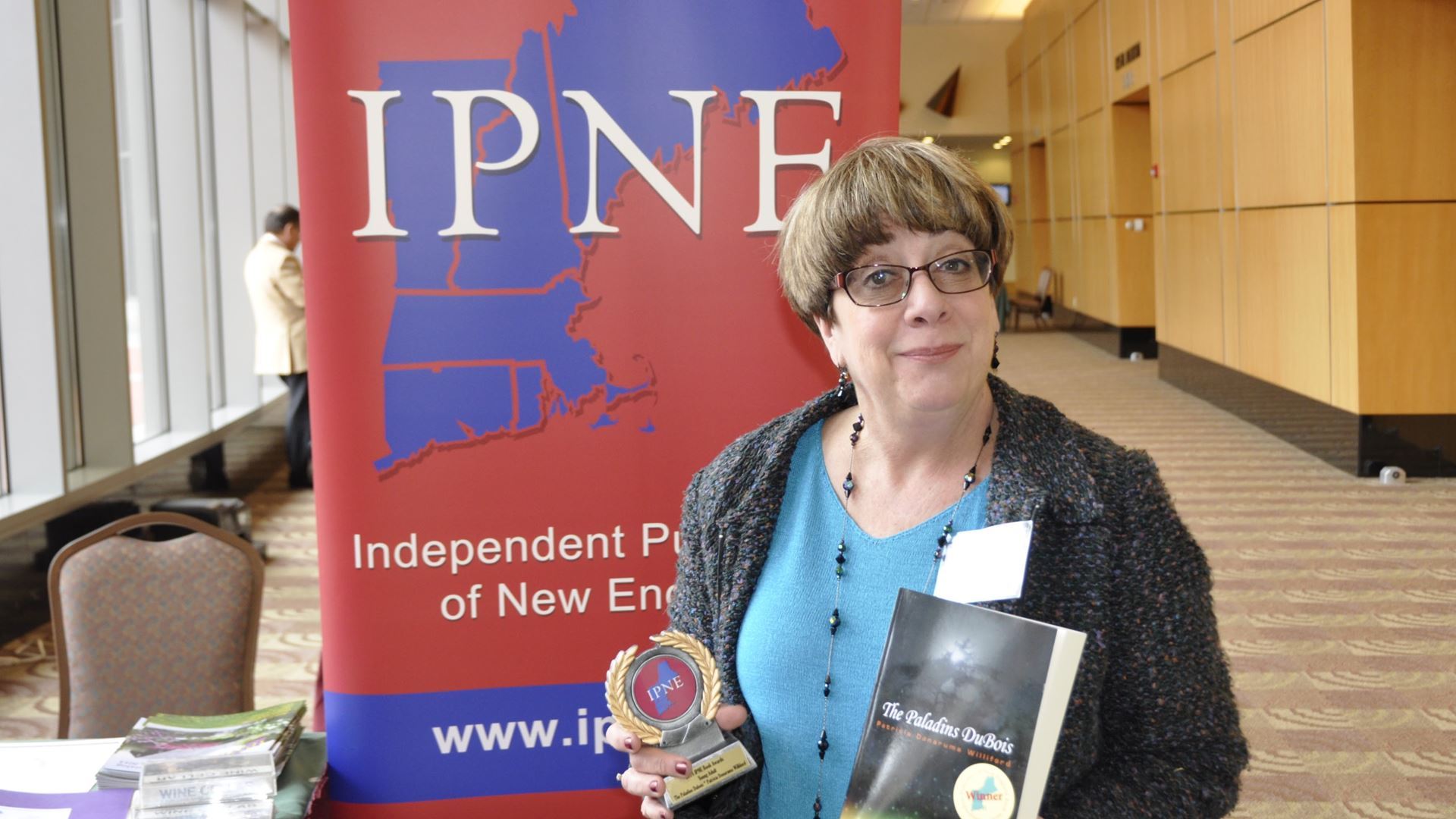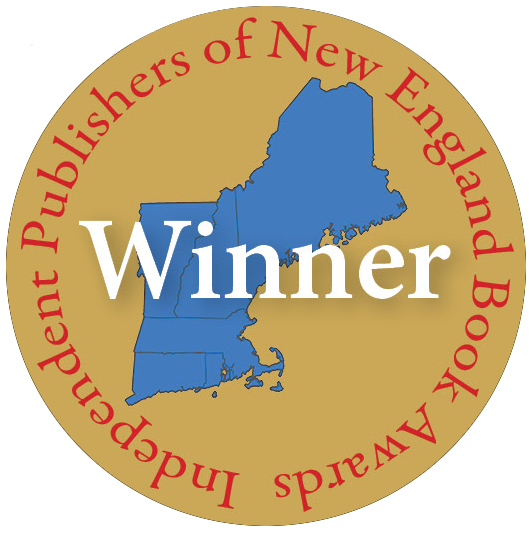
Registration Extended to July 17
We're looking for books. Is yours a winner?
There's no time like now to step up and find out. Winning a respected book award can help you reach new audiences and boost sales. It also delivers a satisfying cap to all the hard work that goes into putting out a fine book.
Read on for important details about registering your book, and where to send the four copies.
If you have a book with a publication date of 2020, 2021, or 2022, you are eligible to enter the 9th Annual IPNE Book Awards. Read about last year’s winners.

Winners are showcased on the IPNE website. They receive a 2022 IPNE Book Award e-medallion for display on social media channels, websites, and marketing materials. And they are honored at the annual IPNE book award ceremony, the high point of the conference for that year.
Each book is judged by three independent judges drawn from a panel of literary scholars, authors, librarians, developmental editors, booksellers, and other qualified reviewers selected by IPNE’s 2022 Book Awards Committee. This rich, independent evaluation is the foundation of our process.
All entries will compete within their categories, and also for the top prize as IPNE Book of the Year.
Become a member of IPNE and be eligible for the member submission rate.
. . .
Eligibility
Print books published in 2020, 2021, or 2022.
Entry Fee
The fee is $45 per title, with an accompanying selection of the primary category. An additional category is $25. Make sure not to select conflicting categories.
Awards Categories
Registration includes one of the following categories for each book entered.
-
LITERARY FICTION
Fiction that does not fit neatly into the traditional formulas of genre. That favors rich language, nuanced characters, and sometimes also experimental strategies or form. That tends to concern itself with the human condition. For a “hybrid novel,“ one that seems to extend the framework of genre into the realm of the literary, enter your novel as one or the other, based on the novel's strongest attributes.
- GENRE FICTION
Fiction that meets (or sometimes plays on) reader expectations for a certain type of story: mystery, romance, historical, science fiction, fantasy, and so on. Genres have one or more core features that make the genre what it is, and which a story must incorporate to be of a particular genre. Contemporary genre fiction also sometimes incorporates features traditionally associated with literary fiction, such as fine language and nuanced characters.
- CHILDREN’S BOOKS
Fiction or nonfiction, for 12 and under. Picture book (ages 3–8), early reader (ages 5–8), middle grade (ages 8 to 12). Children's books can wander over various subjects, as appropriate for the age group. Content, treatment, and reading level are key in these categories.
- YOUNG ADULT BOOKS
Fiction or nonfiction, for 12 and up. YA books can be of many genres, address many subjects. What distinguishes them is the focus on teens and their particular concerns. Some YA books are written with the younger teens in mind, some the older. Young adult is not to be confused with middle grade.
- GRAPHIC NOVELS
Fiction or nonfiction, visually presented.
- NARRATIVE NONFICTION
Nonfiction that tells a story, whether of a person (biography or memoir), an event (as with literary journalism), a time period (as with a history), or something else. The subject matter may inform the story, but narrative drives it. Enter nonfiction as either narrative or informational, not both.
- INFORMATIONAL NONFICTION
Nonfiction that informs — and that is organized purely to inform — such as directories, travel guides, how-to's, self-help, reference, and so on. Informational fiction may include short narratives, but narrative does not itself drive the structure or inform the content. A travel memoir, for example, is not a travel guide. Enter nonfiction as either narrative or informational, not both.
- POETRY
Collections of poems. One long story told in verse would instead be fiction or narrative nonfiction. A collection of poems or a story in verse for children would typically be a children's book.
- COFFEE TABLE AND ART BOOKS
Large format, visually rich. A book in which the design is as significant, if not more so, than the substance. Either way, it has been designed to showcase that content.
- DESIGN
This category stands apart from the others: only the design (both exterior and interior) are evaluated. Nothing of the substance. Most typically applies to coffee table or art books.
Take care to select a primary category that best fits the book, and a secondary category only when the two categories do not conflict. A coffee table/art book is a natural for a secondary category of design, for example. But a novel should be entered as either literary or genre, and nonfiction as either narrative or informational. Note that children's books, YA books, and graphic "novels" are book categories, not book genres: they encompass both fiction and nonfiction.
Entry Process
- Prepare your info. Have page count and word count handy. Have a high-quality image of your cover. Name that file: Book Title, Author Name. (Shorten lengthy titles.) Make sure you have read the awards categories descriptions and instructions.
- Register online (click the Register button, in red, above left). Do not register your book in conflicting categories. Do not register for the same category twice.
- Submit your payment via online registration.
- Mail four copies of your book to IPNE. Three will be sent to judges. One is retained as a reference copy.
Look for the address in the confirmation email you'll receive after registering. Do not send books to a saved address from a previous year. Note we only accept print copies. Ebooks do not qualify.
Deadline for Registration
June 20
Finalists and Winners Announced
Winners will be announced live during the second day of IPNE’s Annual Conference and Book Awards in November of 2022, date forthcoming.
Entrants are welcome to bring guests for a celebratory dinner and the awards ceremony.
Submit Early!
To ensure the integrity of the judging process, entries will be capped at 100.
Questions?
Email us at talktous@ipne.org.
Notices
Depending on the number of submissions for a category, IPNE reserves the right to combine, divide, or otherwise modify the award categories. In the event that categories for a particular genre are added, consolidated, or eliminated, submission(s) will be judged in the category or categories most relevant. Books that have been submitted miscategorized will not be judged in the categories that do not apply.
All entries will be held to basic publishing standards with respect to length and legibility. Entries that clearly violate such standards will be disqualified.
IPNE’s Book Awards are facilitated by a volunteer committee made up of IPNE members and governed by the IPNE Board of Directors.
__________
About the Independent Publishers of New England (IPNE)
The Independent Publishers of New England (IPNE) is an organization of professionals, authors, and companies who collaborate to help each other learn and succeed in the independent book publishing field.
The IPNE Book Awards continue to be a favorite of IPNE members and other indie publishers. Winning a book award or being named a finalist not only brings a sense of personal validation but provides countless opportunities for promoting and marketing your book.
![]()
![]()
![]()
![]()
![]()
![]()
![]()
![]()
![]()
![]()
![]()